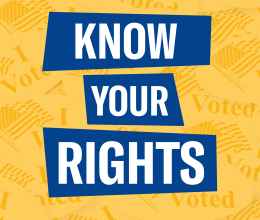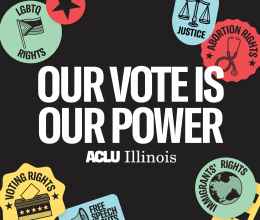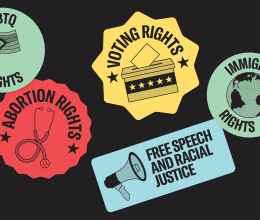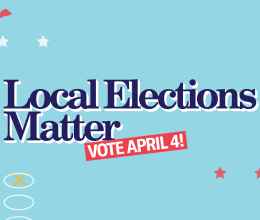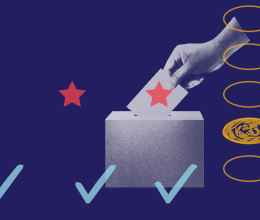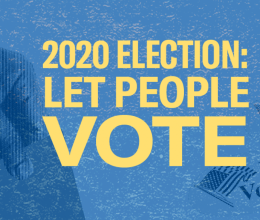
1. STATE CONSTITUTIONAL REFORM:
A critical role of the Illinois Attorney General is to protect fundamental freedoms for our state’s residents. The Illinois Constitution is more modern than the Federal Consitution and, therefore, more specific and expansive in terms of freedoms afforded to Illinoisans.
Do you believe that the Attorney General can seek added protections by invoking the provisions of the Illinois Constitution rather than the federal constitution? If you would use the Illinois Constitution in this expansive manner, how? If no, why?
HARSY: I believe the Attorney General can seek added protections by invoking provisions of the Illinois Constitution, as well as the federal constitution. I would use the Illinois Constitution to defend the interests of the people of Illinois. Specifically, I would use the Article I, Section 16 of the Illinois Constitution to seek to nullify unconstitutional irrevocable special privileges that some government retirees have received for past government affiliation.
2. TRUMP ANTI-CIVIL LIBERTIES AGENDA:
Many state Attorneys General have pushed back against the Trump administration’s anti-civil liberties initiatives. These efforts have included litigation challenging the administration’s policies, support for state legislation and policies designed to mitigate the harm caused by those policies, and assuming civil rights enforcement responsibilities that the administration has abandoned.
Will you respond to the Trump administration’s efforts to roll back criminal justice reform, police reform, prison reform, voting rights, immigrants’ rights, LGBTQ rights, reproductive rights, freedom of the press, and other civil rights and civil liberties? If so, how?
HARSY: Criminal Justice reform is much needed in Illinois, as well as the United States. I have taken the position that I will not criminally prosecute anyone for non-violent marijuana offenses, and will actively try and have people released from prison that are only incarcerated for non-violent marijuana offenses. Furthermore, I will actively push to starting treating individuals that commit drug offenses as health issues rather than criminal matters. I do not believe that arresting someone for a drug offense and locking them in a cage for a period of years does anything to address that underlying problems generally associated with substance abuse. I would like to offer treatment for those individuals to hopefully address the under lying issues as well as provide legitimate job skill training for all inmates so once they are released from prison they have better options for employment in an effort to prevent them from falling back into old habits.
3. IMMIGRATION:
In the past eighteen months, the federal government has deployed increasingly cruel, unnecessary, and in some cases unlawful enforcement tactics against immigrants and their families. These have included a ban on travel to the U.S. for people from predominantly Muslim countries, stops and arrests without individualized suspicion of wrongdoing, raids that indiscriminately sweep up everyone present at a workplace or other location; and enforcement actions at courthouses that target people appearing as witnesses or for other important court business.
Will you take steps to protect documented and undocumented immigrants in Illinois from harmful or unlawful immigration enforcement practices? If so, how? If not, why?
HARSY: The federal government has constitutionally granted authority on immigration matters. It is apparent to me, that it may no longer be in the best interest of the people of Illinois and the people of other states to allow the government to be in charge of immigration matters. When the United States Constitution was written, a person had to physically-make landfall on a coastline to entire into America. In modern times, this is no longer the case as most states have their own international airport.
4. VOTING:
This past June, the U.S. Supreme Court upheld Ohio’s draconian process for removing voters from the rolls if they fail to vote for two years and do not return a postcard mailed to their address.
Will you protect Illinois voters from “purges” that may remove eligible voters from the rolls, while retaining voter security? If so, how? If not, why?
HARSY: A voter purge after failing to vote for two years is beyond problematic. That being said, Illinois needs to do something in order to eliminate deceased individuals from voter rolls in an effort to maintain voting security and integrity. I believe this problem would take care of itself by requiring voter ID’s and by providing voter ID’s to individuals who could not otherwise afford one at no cost.
5. RELIGION:
Increasingly, individuals and other entities claim their religious beliefs justify various actions, even when the actions impact others. This can be seen when some businesses claim a right to discriminate against LGBTQ people and others in the provision of goods and services and when health care providers impose religiously-based restrictions on the services and information offered to patients.
Will you oppose attempts to use religion as a license for discrimination prohibited by the Illinois Human Rights Act? If so, how? If no, why not?
HARSY: I will oppose the attempts to use religion as a license for discrimination. That being said, I believe a property owner or a business owner engaging in a public service has the right to refuse service to anyone as long as it is not based on discriminatory practices. Any businesses accused of discriminatory practices will be investigated and handled accordingly based on the results of the investigation. It is worth mentioning that a church should not be forced to marry individuals they are not comfortable marrying. Some churches refuse to marry individuals for a variety of reasons, and they should have the freedom to make those decisions.
6. OPEN GOVERNMENT:
The goal of government transparency and accountability embodied in the Illinois Freedom of Information Act (FOIA) is frequently undermined when government entities delay responses to requests, claim unwarranted exemptions, or fail to respond at all.
Will you support Illinoisans’ right to full and prompt access to the public records needed to understand the operation of state and local government and hold public officials accountable? If so, how? If not, why?
HARSY: I will support Illinoisans’ right to full and prompt access to public records to ensure government transparency and government accountability. When government entities delay responses to FOIA requests, claim unwarranted exemptions, or fail to respond at all, I will seek to initiate quo warranto proceedings against the FOIA officer that is failing to objectively adhere to their duties and have them removed from their position. I believe after enough government employees are removed from their positions, other FOIA officers will follow the letter of the law in making disclosures of information requested through FOIA. If every single FOIA officer has to be removed from their position in order to get the point across, then so be it.
7. CRIMINAL JUSTICE:
74% of Illinois voters believe our criminal justice system is “broken.” In December 2016, a bipartisan Commission on Criminal Justice and Sentencing Reform recommended specific reforms to safely reduce the prison population by 25%. Yet two years later, Illinois still has one of the nation’s most overcrowded prison systems, and many of the Commission’s most significant recommendations still have not been enacted into law, including:
- Reducing the sentence classification for all drug crimes by one class;
- Raising the felony threshold dollar amounts for retail theft and other nonviolent property crimes from their current levels to $2,000; and
- Allowing inmates who are currently required by statute to serve 85% or 100% of their sentences to earn additional sentence credit to reduce the length of their prison stays.
Are you committed to working with the legislature to enact criminal justice reform measures? If so, what specific reforms do you consider your highest priorities, and what will you do to ensure that they are enacted? If not, why?
HARSY: I am committed to working with legislatures to enact criminal justice reform. My specific reforms that would be the highest priority would be to get non-violent marijuana offenders out of prison as soon as possible and treat other drug issues as mental health matters rather than criminal matters. Someone with a first offense for drug possession would receive medical treatment to address the underlying causes of substance abuse rather than being locked in a cage for a period of years without any real help to address the underlying problems. These people would not be charged with felonies for their first offenses either in an effort to provide legitimate rehabilitation to these individuals and allow them to find gainful employment after their rehabilitation.
8. TRANSGENDER RIGHTS:
Despite progress in public understanding about gender dysphoria and inclusion of persons who are transgender in popular culture, discrimination against those who are transgender takes many forms and remains pervasive in many parts of society. Some health care plans continue to retain specific, discriminatory prohibitions on coverage of the health care necessary for the treatment of gender dysphoria. Employees who are transgender face discrimination as they transition (and after) at work. Students who are transgender face a myriad of problems, from the inability to execute a name change on school records to the ability to use gender-appropriate pronouns, or fully access and utilize the restroom and locker room consistent with a student’s gender identity. Persons who are transgender face harsh and discriminatory treatment from police.
Will you work to affirm and protect transgender people from discrimination by: (1) fighting to uphold federal court decisions holding that discrimination against transgender people violates federal laws prohibiting sex discrimination; and (2) taking steps to ensure that Illinois laws, such as the Human Rights Act, are interpreted broadly to affirm and protect people who are transgender from discrimination in Illinois, including in employment, their use of educational and other public facilities, access to public and private health care, their treatment by law enforcement personnel, and in prisons, juvenile facilities, and other forms of state custody? If so, how? If not, why?
HARSY: Transgender individuals, along with all other individuals have the right not to be discriminated against and I will work to affirm and protect transgender people from discrimination. Anytime an individual is not hired, or fired because they are transgender, there will be an investigation in to the hiring or firing practices of that business. Anytime a transgender individual is refused public service because they are transgender, the business engaging in unlawful discrimination will be investigated and the matter will be resolved accordingly based on the findings in the investigation.
9. POLICE PRACTICES:
The national dialogue about the relationship between police and the communities they serve is very much active here in Illinois, specifically Chicago. Tensions between the Chicago police and many of the communities served by police run high today. In 2017, the U.S. Department of Justice issued a scathing report about practices and training in CPD, problems that exacerbate and heighten the tensions between police and – especially – communities of color. It is clear that Chicago’s policing system if broken and in need of systemic reform, with federal court oversight. The current Attorney General is negotiating a federal consent decree with the City of Chicago to reform the Chicago Police Department.
Will you pledge to urgently pursue and enforce a comprehensive consent decree with the City of Chicago, and involve community and civil rights groups in the monitoring and enforcement of the consent decree reforming the Chicago Police Department? If so, how? If not, why?
HARSY: I will pursue and enforce the consent decree with the City of Chicago reforming the Chicago police Department. That being said, the Consent Decree is a piece of paper, and is meaningless if we do not begin to hold bad acting government employees accountable for their actions. I believe that police officers in Chicago, as well as the rest of the United States know they have a duty to protect the constitutional rights of the people they interact with while performing their duties as a law enforcement officers. Regardless of a consent decree, law enforcement officers know they have a duty to protect the constitutional rights of people they serve. This notion that law enforcement officers do not know this because there has not been a consent decree in the past is absurd.
10. REPRODUCTIVE RIGHTS:
Access to reproductive health care in Illinois has become more critical than ever, as threats increase at the federal level and states throughout the Midwest pass increasingly harmful restrictions.
Will you commit to using the power of your office to protect and expand access to the full range of reproductive health care and information, including contraception and abortion, for all people in Illinois? If so, how? If not, why?
HARSY: All people in Illinois should have access to the full range of reproductive health care and information, including contraception and abortion. Individuals know how to run their lives better than the government, and as such, they should be able to make their own decisions about their bodies. Any laws preventing someone access to reproductive health care and information will have their legality challenged by my office and in all likelihood be struck down by a court.
11. WOMEN'S RIGHTS:
Despite the progress already made in the struggle for gender equality, women still face violence, discrimination, and institutional barriers to equal participation in society. Gender bias continues to create significant barriers.
Will you commit to using the full extent of your authority to enforce state and federal civil rights laws in order to address policies and practices that have a discriminatory impact on women and/or are based on sex stereotyping? If so, how? If not, why?
HARSY: I will commit to enforce state and federal civil rights laws in order to address policies and practices that have a discriminatory impact on women; I will also challenge the constitutionality of any laws that have a discriminatory impact on women as well. Any complaints based on discriminatory practice for any reason would be thoroughly investigated and prosecuted accordingly. I do not believe in political witch-hunts, but when objective facts can be provided showing discrimination, they will be investigated and dealt with accordingly based on the results of the investigation.
